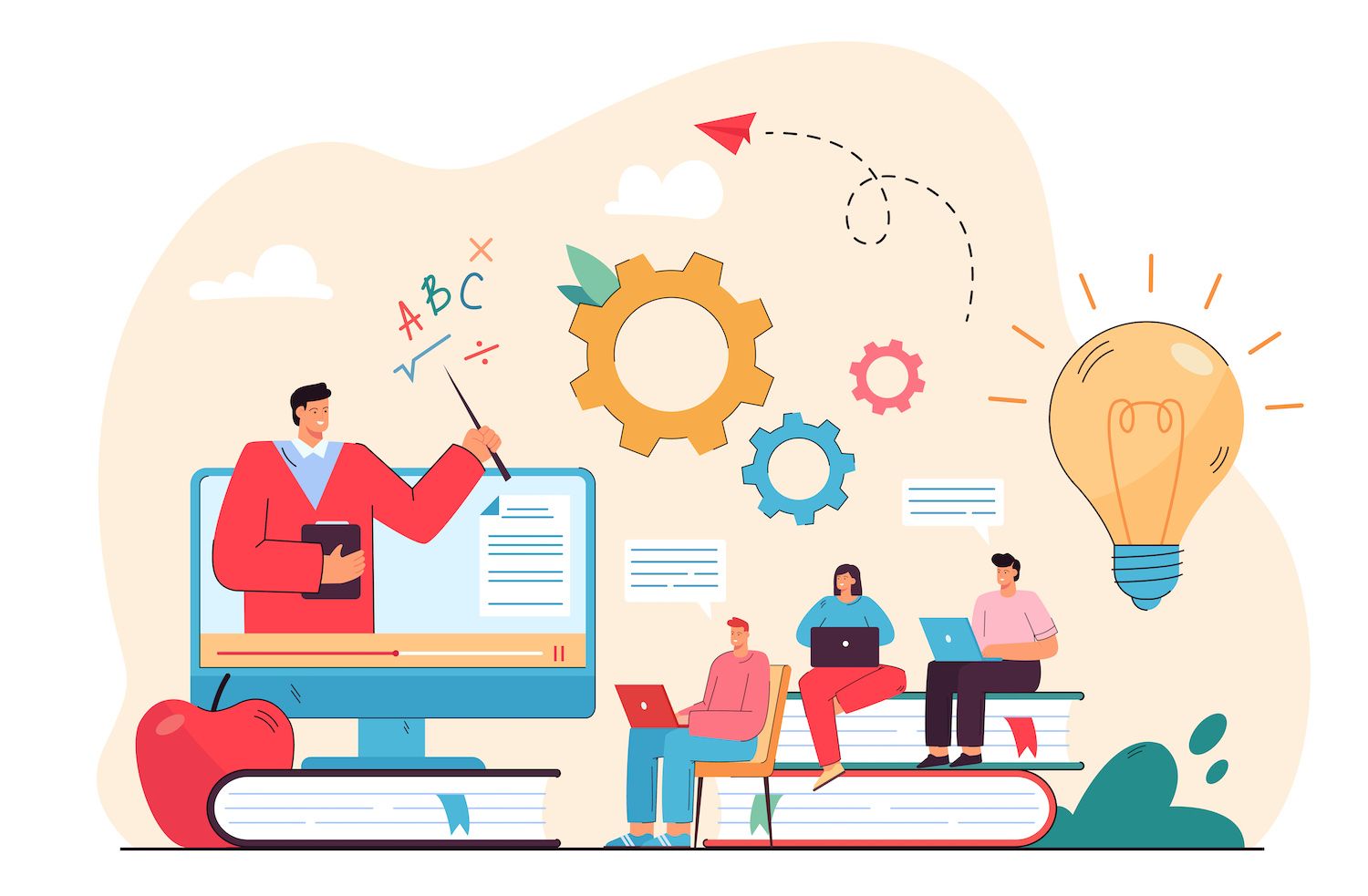Terms

"I was born and raised in Southern Vermont," starts Max Mackson of Maximilian Mackson, LLC. I attended homeschool through high school. I was able to do work on my computer. I learned HTML, CSS, and JavaScript, the languages of the web, and kept experimenting with other initiatives."
As a teen, Max entered a play program. "I learned how to conduct myself professionally; we had a demanding director and I'm grateful we had him as he taught me to stay on time and make sure you're ready," he adds. Max's first IT work experience came around this time. "Between my junior and sophomore year in high school, I had a job at a local club located in town. I was there twice a week to update their website, and it was God awful! They were using a perverse third-party software; it took about half an hour to accomplish tasks which with WordPress could have only taken 2 minutes." The author states.
Meeting people face-to-face when fixing the tech certainly helped He continues. "I'm all about personal connection. I get a lot worth from friendships. In the summer in the club the club was running at its peak every day. So, it was a matter of time before there was a problem with the printer in the kitchen, it went down and I needed to leave the space. It was hot and bustling with people running around me. It was as if we were "in in the moment" and in the moment!"
Max was fascinated to see his results from the work the he was doing to try to break the tense relationship that we share with tech sometimes. "When I was working with other people that were with myself, I'd say to them that I had installed an update on the computer. I'll try to see if it helped them or if they were in confusion. I was able to see the different perspectives and find out what the responses to technology are. The majority of IT professionals will say, "Okay, that is what we have now; this is an update', and I find it irritating. I love working with other people."
Max found the importance of having a solid grasp in technology could help improve the lives of individuals. At the time of his country club days when he was a teenager and resentment towards printers started "They don't seem to perform when you need for them to!" he smiles. A large portion of his time was spent repairing printing equipment; and working with computers gave him an understanding of the system's architecture "I eventually had to rework all of their systems over time. It's still the same tasks they perform today," he adds.
He is soaring out alone
To receive a formal education, Max went to Champlain College located in the northern part of Vermont but he learned something else than the typical education. "I was among a dozen information technology majors and it's hilarious considering that when I was at school , it was decided by the college that they wanted to eliminate this specialty! They brought us to an area and told us, 'Hey, guys, so you're still going to be offered the possibility of being able to graduate. However, we won't provide your degree after this year'!"
Max could enter the audio-visual field due to his previous experience at the theater. "That involved more fixing technology because all classes depended on an electronic computer or projector, as well as projection screens," Max says. "When things went wrong and we went into full classes with students, everybody was looking at us. Then we'd get up on a table and change out a lamp to projector!"
"I attended college for just two years. I left because I felt it was difficult to keep up. The world of the internet moves in such a fast pace that before you end with a degree and you're not in the real world. For the professors having to learn and pass on these ideas to their students, there's a long time," Max adds.
Of course, the pace of technology advancement isn't slowed down and in fact, has been increasing, and the velocity and goal of higher education led Max to establish the company which he manages. The main reason for his departure was due to the fact that his expectations toward the future wasn't as bright as those of his institution: "They liked to say that 99 percent of their students employed immediately after graduation - which is great, but they're very focused on making sure that everybody gets in the workplace. I love working with others however, not in this manner; it wasn't for me."
After that, Max took the decision to strike out alone and begin searching for his first client. Max was recently a participant in a webcast and was told by the host that the webinar was seeking feedback. Max recalls: "I sent one in trying to improve my abilities in copywriting, however, ultimately I added "PS-If my skills could ever be of use to you, please let me know'. He replied: 'Well, what do you have to do?'"
Max was browsing the site and created an outline of the improvements: "No BS, just simple and direct" and Max got a quick reply: "Text me" and the number. "That is how I obtained this particular job. He's still a good client!" Max smiles.
Projects and services
"You are surrounded by various pieces of software used to power your company, yet they're not communicating with one another. Max is the one who can get the software to communicate flawlessly," Max says. Max clarifies how this result in one more robust system that can boost business growth and reduce the amount of time and energy. "I consider myself to be an integrator and system architect. My parents and a lot of people refer to me as"the IT guy!" he jokes.
Max claims that the average client's technology stack may have 100 pieces of software, each in its own compartments. "You need to bring everything together in order that they communicate with each the other. When I started, I worked with a few customers in Web design, then I began working on integration April of 2021 when one of my customers had plans to launch a member-paying exclusive community."
Max worked with this client, an evangelist as well as a health influencer for a few months and the relationship was proceeding well. Max did not have any prior experience in the field of membership, but was aware of the major problems were likely to come up. "I found myself researching several members' software companies. There is a way that I can go about researching, in which I go through different lists of what's the best software and compare them."
Max picks software to provide an optimal user experience both from an administrator's perspective and a standpoint of the user, which means that customer support is less time-consuming in the long run. The ease of use is vital. "I can work in a more complex environment, however I also see that when something reaches the level that it's not useful for the average person. People want to buy an item, and want to have access to it. This is the typical situation where someone is logged into the website, I'd be aware of their reaction. I would start to explain what they were doing and their eyes were glazed!"
Styles of integration and the future
"Integrations could appear complex," Max muses. "They have different types and have different levels. For a native integration similar to Mailchimp, just click a couple of buttons and it's approved, and you're good to start. Low-code and no-code integrations such as Zapier's Zaps. They also have completely customized ground-up integrations where you create all of the components from scratch."
"Generally I'm mostly in the non-to- low-code area, as it works well for my clients. For one integration the client needed to learn more about it. They were looking to include the features of native integration , however through Zapier. I had to use twelve Zaps to get the whole set-up wired, in addition to achieving an authentic feel, however I was required to develop some custom code."
What made this particular venture fascinating was the amount of people who participated. "The initial day that began that we attempted to complete 50,000 jobs through that was incredible! It needed to be improved significantly to make sense. I was able to bring it to an average of less than 5000 work tasks every day. This is pretty impressive."
He adds: "That was the first time I had worked with a customer of that magnitude using Zapier. I've had the pleasure of working on lots of projects over the years, some that were more design-oriented while others had more technical elements and this stood out."
The greater potential of development could drive Max's development plans in the future. Max declares: "Longer term, I want to develop software intended for business use." Max also states that his opinions about software is often due to the fact that it's a crucial aspect of his work and also because numerous applications have become more difficult to use as time has passed. "It has grown bloated and slow and isn't very user-friendly. It's constantly releasing UI enhancements that raise the difficulty. In the present many people are expecting software to be a mess!"
The founder explains that his goal is to offer a pleasant simple, user-friendly experience for customers. "It's still in the design stage, but I've got an interesting idea. The project is likely to take at minimum six months away since I usually be an individual worker for the majority of the time. I don't like working with agencies: they give the project to an unknown developer who is later hidden in a closet! I'm unhappy in this type of setting and I typically work with different people in a one-on-one manner."
Max discusses his thoughts on the latest news and provides preferential treatment for members of his mailing list (which is commonly called the "#MilianFam"). As an exclusive deal for those who are new subscribers through the list Max has designed an extra bonus program that, at the time of the post isn't available elsewhere, at any price.
This post was posted on here
